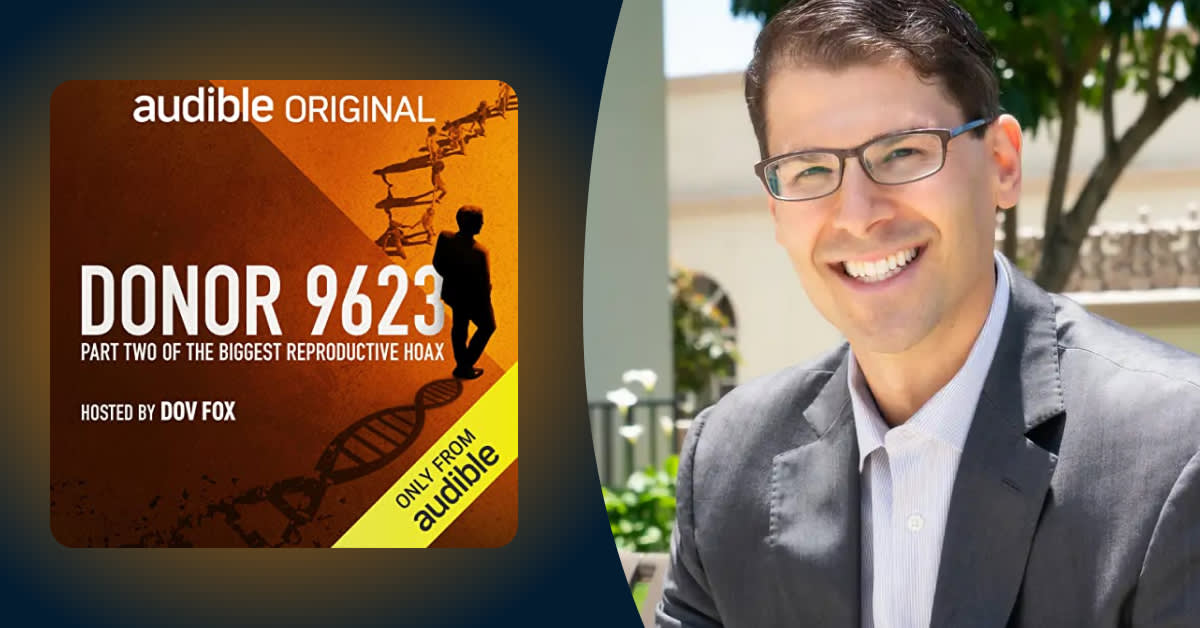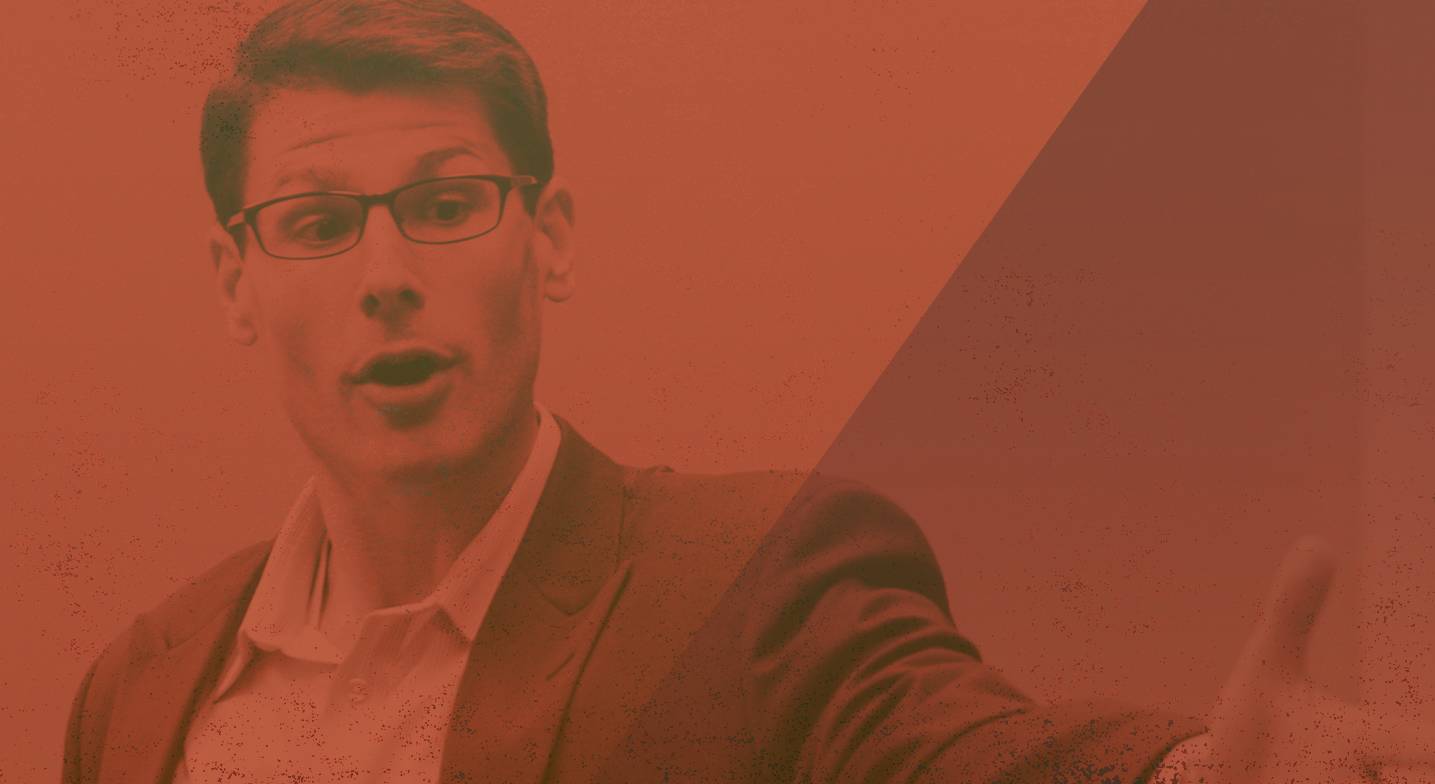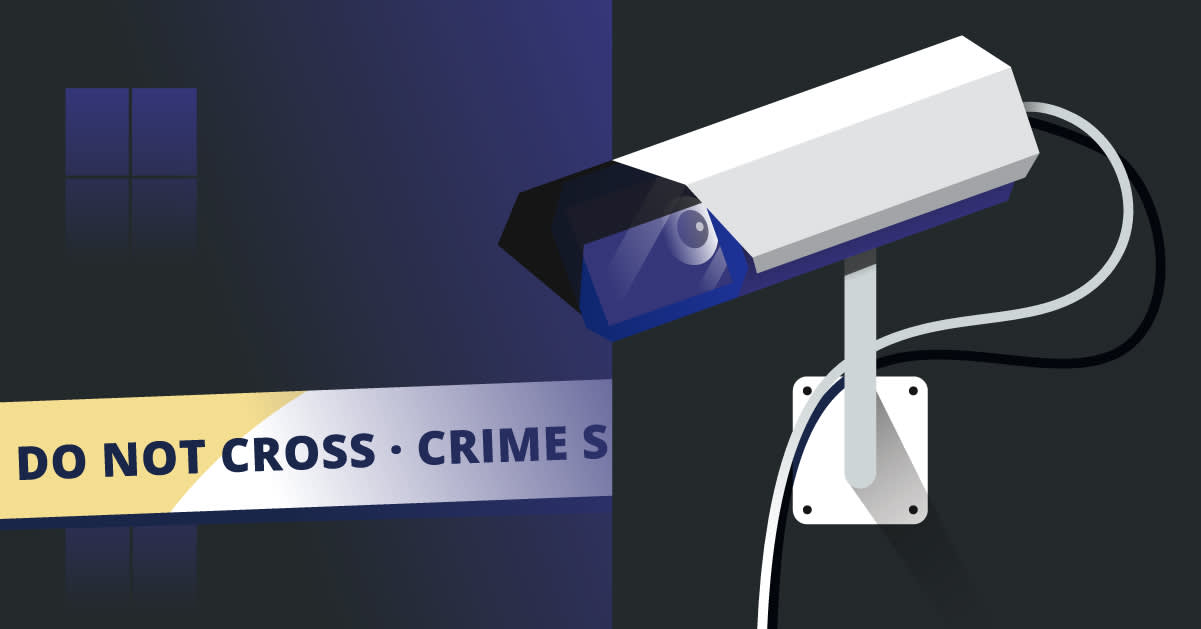In the investigative podcast Donor 9623, host and law professor Dov Fox unravels the strange case of a sperm donor who seemed to be the perfect biological father—a music prodigy and gifted athlete with a genius IQ. The only problem? It was all a lie. 36 children later, the truth about the biggest hoax in reproductive history finally came out in the explosive first season. As Fox returns with the podcast's hotly anticipated second part, he shares the inside story of Donor 9623.
Audible: Donor 9623 was a cult hit at Audible and introduced many people to just how unregulated the fertility industry is. What was most gratifying to you about the success of the series?
Dov Fox: Seeing signs of social change, and hearing from listeners about their own stories.
After the podcast came out in late 2020, the Georgia Supreme Court ruled in favor of Wendy and Alex Norman, who we get to know in the first season and this new chapter. The legal win entitled them to gather evidence and call witnesses under oath. Before that, every lawsuit by a 9623 family against the sperm bank had been settled or dismissed. The trial in Norman v. Xytex is scheduled for September 2023.
It’s not just a resolution in this one case. The release also brought outreach from lawmakers wanting to see what could be done to guard against deception like this in the future. I got to help draft and testify about legislation to enhance transparency in fertility practices.
In May 2022, Colorado passed a law requiring sperm banks to disclose a donor’s identity and family history, and also to cap at 25 the number of families that any given donor’s sperm can be sold to. It’s the first meaningful regulation of assisted reproduction in American history.
A national proposal would go further, mandating that tissue banks verify a donor’s medical information and share anonymized health records with aspiring parents. That federal bill would also require donors themselves to reveal any diagnosed conditions or genetic risks they know about.
“Steven’s Law” is named for the son of Laura and David Gunner, who we hear from in the first episode of Part Two. The Gunners used a sperm bank to conceive Steven. In high school, they say he transformed all of a sudden from a well-adjusted football captain to a deeply troubled teen. Doctors were stumped by the absence of any family history of mental illness. By the time Steven was diagnosed with schizophrenia, it was too late for effective treatment. He lost his life to an opioid overdose at just 27 in May 2020.
The podcast came out a couple months later. The Gunners used the Donor Sibling Registry that comes up in the second episode to connect with other families who had picked Steven’s donor. They found out that he had also been diagnosed with schizophrenia and hospitalized for it before becoming a donor—none of which was disclosed on his profile. They also learned that Steven’s donor had died of an opioid overdose too.
Laura and David’s brave decision to come forward has had a powerful impact already, inspiring Steven’s Law and another one that’s pending in their home state of New York. Hearing from folks like the Gunners and seeing the difference they’re making has been incredible. And it’s starting to feel like a real turning point.
Part Two is a more personal dive into the families affected by Donor 9623, as they’re dealing with the shocking revelations of Part One. Were you surprised by how differently they reacted?
Yeah. I figured they’d react pretty much the same. I mean, they’d all been lied to the same way, were now dealing with the same health risks, and had heard the same interview with the donor. I assumed those shared circumstances would dictate a similar response. What I didn’t realize is they were actually coming from diverse backgrounds, bringing distinct perspectives to a situation that’s far more complicated that I’d made it out to be in my head.
“I learned a lot about forgiveness from my Jewish grandparents, who raised me until I was 10. They said it’s about acknowledging how a bond between people has been fractured, when healing that break can take more than just saying sorry.”
Some families, like the Normans, have struggled with a child’s mental health challenges. Other kids from Donor 9623 have been perfectly healthy. They range in age from six to 20, and span the globe. A couple of the different-sex parents haven’t told their kids they were conceived with a donor, not yet anyway. The single moms and lesbian parents all have, of course. But most haven’t shared his schizophrenia diagnosis.
The mixed bag of circumstances among these families makes it easy enough to see how they might experience the same basic facts they have in common in ways that end up being very different. Especially when it comes to things as personal as family and forgiveness. Things that raise hard questions about who we count on most. And how we think about forgiving the ones who let us down the hardest.
I learned a lot about forgiveness from my Jewish grandparents, who raised me until I was 10. They said it’s about acknowledging how a bond between people has been fractured, when healing that break can take more than just saying sorry. Judaism teaches that showing remorse is not so much a moment as a journey of letting someone back into your heart.
That journey is what one of the families embarks on with Donor 9623, Chris Aggeles. It takes a leap of faith and openness to extending him grace. For another family, that deception cut too deep. They’d need him to appreciate the suffering his betrayal had caused. And that act of bearing witness might demand more vulnerability than he’s capable of for now.
Or maybe it’s just that there’s no forgiving the unforgivable. Some wrongs are so bad that a relationship can’t be repaired. My grandparents said there couldn’t be redemption for Nazis who asked to be forgiven after the Holocaust. I wonder if that could also apply to less existential transgressions by the people we rely on most.
Especially frightening for these families is the donor’s undisclosed history of mental illness. What’s your take on the stigma around schizophrenia vs. the reality of what it’s like for families dealing with this condition?
I think the symptoms and perception reinforce each other. A diagnosis of schizophrenia can be devastating for families. A lot of that has to do with how the condition is seen as scary and “other.” There’s a sense it dooms people to a violent and isolated existence. Even the term “schizophrenic” gets used as an insult to imply someone’s deranged and dangerous.
This stigma may even be getting worse. The biggest study about perceptions of mental illness was carried out by German researchers. They asked the same set of questions to a sample of the population, first in 1990 and then in 2020. 30 years later, respondents were actually less willing to accept someone with schizophrenia as a roommate or co-worker.
Most people aren’t familiar with how complex the disease is. It can show up in different ways—numbness, agitation, disorganized thinking, or altered perception, hearing voices or seeing things that aren’t there. Therapy and medication can help, especially if they come early and in a sustained way. Getting that help would be a lot easier if people weren’t shamed or shunned for having schizophrenia.
But stigma isn’t the only barrier to effective treatment. Some people who are prescribed antipsychotics can’t bear how dizzy or out of it they make them feel. Others don’t realize they have a serious illness in the first place. It’s not that they’re in denial or being stubborn. The way their brain makes sense of what they’re going through can keep them from processing their experience in terms of a medical condition. Chris’s lie of omission may have been layered atop all of these.
In telling the donor’s side of the story more comprehensively in Part Two, did you have any concerns about the veracity of his statements given his past deception?
Sure. I mean, even if he was trying to be completely truthful, it could just be confusing, piecing together events and motives from decades ago. And maybe he himself was still working through why he lied and kept selling sperm based on that key omission for so long. So yeah, I had doubts. But I got the impression he was there in good faith.
And I didn’t just take his word about his mental health, for example. There’s reliable evidence going back over 20 years—not just from credible sources who knew him well over that period but also from clinical documentation in his criminal record. Those details help to back up what he says now about his medical history.
“A journalistic project like this one called for more careful listening and engagement and trying to put myself in other people’s shoes to understand where they’re coming from.”
One of the family members says he was shocked by how “coherent” Aggeles seemed in Part One—“he sounded like he was thinking and processing what he was doing and had thought everything through.” What’s your take on his motivation and state of mind in the period when he was a prolific donor?
At one point, Chris himself suggests his mental illness got in the way of making sound decisions. But it’s not like he claims voices were telling him to sell his sperm under false pretenses for years on end. And folks at the sperm bank didn’t seem to notice him acting out of the norm. But maybe untreated schizophrenia got in the way of his critical thinking. I don’t know. I do think it could have mattered in some other, less direct ways.
When Chris headed off to college on a music scholarship, his life was full of promise. I got the impression his rare charisma and work ethic gave him a reasonable shot at the drumming career and flourishing family he hoped to make. His freshman year, the onset of psychosis suddenly changed all that. That’s often how it is with this disease. It usually shows up out of nowhere in early adulthood, just as you’re coming into your own—when losing your grasp on what’s real can derail the plans you’ve made for the future.
The next chapter of Chris’s life went nothing like he thought it would. This was also when he would go on to become the most popular donor for well over a decade. It seems like he spent much of that time disillusioned and lonely, between the hospital and prison. With that background, I wonder if creating this super-successful alter ego at the sperm bank let Chris live out a happier version of how his life could have gone. Like, Donor 9623 is the man he saw himself becoming before the disease took that from him.
Or maybe it’s simpler. All the positive attention he got from the sperm bank and families just gave him a boost when he was down on his luck and didn’t feel very good about much else. And beyond any emotional satisfaction, selling sperm was also a source of income—more than 10 thousand dollars a year. I think another part of it is he really needed that money—to the point that it kept him from being homeless, which he had been after he dropped out of school and struggled to hold down a paying job.
I’m not sure I put much stock in his claim that he just wanted to help people have the kids they weren’t able to. There were plenty of other donors available. Altruism doesn’t explain why he thought his genes are the ones that scores of babies should all carry. At the same time, he doesn’t strike me as narcissistic or obsessed with spreading his seed. It’s easy to think that only someone with a massive ego would donate so many times and for so long. But I don’t think he has a God complex. Certainly not like some serial donors on a mission to conceive as many offspring as possible.
One of them, a man named Jonathan Jacob Meijer, is estimated to have at least 500 offspring, possibly over a thousand. The UN’s International Court of Justice recently said that’s enough. At the end of April 2023, it ordered him to stop donating his sperm, imposing a 100,000 euro fine per infraction. The judges explained that Meijer had deliberately misinformed parents about how many children he’d fathered, leaving the resulting kids at risk for identity problems and accidental incest.
The case went to the Hague years after the Dutch government had banned him from providing his sperm in 2017. Meijer was found to have continued donating privately using fake names while traveling to other countries to provide his sperm abroad. I don’t see Chris doing anything like that. For him, I think it was more about letting him reclaim, on paper anyway, the dreams his mental illness had dashed. That, and his need for cash and approval at a time in his life when he found himself short on both.
You’re a law professor with a specialty in reproductive issues. What was it like becoming a podcaster? What elements of your background transferred over, and where did you find yourself tapping into a totally new skillset?
I think an academic sense of curiosity has helped—asking how the legal system or whatever else works, and why this is happening or whether that matters. Another thing that’s felt familiar from my research is trying to be critical about which sources are worth relying on and trying to keep an open mind about where they might lead.
The biggest complement was a sense of narrative. Behind any case or statute I’m interested in is a story, where things happen to people, driving new actions or ideas. Writing a book or law review article is primarily about making an argument, using evidence to support a conclusion. But I try to do that in a way that also tells a story, with a beginning, middle, and end. This narrative perspective has been useful as the episodes unfold.
There have been differences too. My teaching job involves long days in the library. I study the law mostly by reading about it, not so much talking with the individuals involved or affected. A journalistic project like this one called for more careful listening and engagement and trying to put myself in other people’s shoes to understand where they’re coming from. I’m not used to building relationships as my main source of information and learning principally through those conversations.
“Families are complicated. They’re formed in different ways and assume all kinds of shapes and joys. Each faces unique challenges that can include the biology or trauma a child inherits.”
Another thing that’s been new for me is the level of collaboration. I typically write on my own, save for research assistance and the occasional coauthor, whereas making a podcast is a team sport. I was incredibly lucky to work with a gifted sound engineer, John Dracy, and decorated composer, Gary Gunn, whose rich score makes the voices come alive. From jump, the whole vision came from executive producer Heather Won Tesoriero, an Emmy-winning producer and journalist. Getting to make this with them has let me know a story together that I never could have alone.
What do you ultimately hope listeners come away with from Part Two of the series?
That families are complicated. They’re formed in different ways and assume all kinds of shapes and joys. Each faces unique challenges that can include the biology or trauma a child inherits. Whatever those particulars, it seems to me parenting can be done well or go badly.
Genetics plays an outsized role in in how we think about what a parent means, in life and in law. The first episode describes the February 2023 case of an Oklahoma woman who was denied parental rights to the child she’s raised since birth, who calls her mommy. The only thing they didn’t share is DNA. That gets family all wrong. It’s the people who are most reliably present in our lives, to confide in and lean on, for little things and big ones.
Still, I think it can be hard to tell our life story without knowing how it begins. Growing up without a biological parent leaves some of us to wonder about that part of where we came from. That genetic sense of identity and belonging can even feel like a shadow that follows us in the shape of the person who isn’t there. Which explains why people who are adopted or donor-conceived may seek that person out, even when they already get all the love in the world at home, and when their interest in that stranger could be met with an indifference or rejection that can be devastating.
The story of Donor 9623 is less about the law than its limits. It’s up to the parents and children and Chris himself to decide what they mean to each other going forward—and whether they could forge a trust or even intimacy out of a relationship built on a lie. For all the pain that’s defined this story, I think it’s ultimately, almost impossibly, hopeful.






